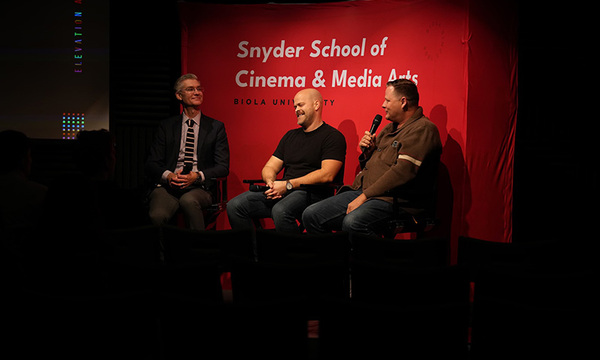Biola University launched the Center for Marriage and Relationships this semester to address one of the most pertinent issues in society: the decline of biblical understanding supporting today’s marriages and relationships.
“We are witnesses to a growing cultural angst concerning the institution of marriage,” said Chris Grace, director of the Center for Marriage and Relationships, which opened on July 1. “Underlying these stresses are widely held — and mistaken — notions that the majority of marriages will fail.”
The Center for Marriage and Relationships will conduct research that applies scholarly analysis and biblical teaching to the critical questions facing society, Grace said. Each year, the center will collaborate with faculty and staff from Biola, as well as other institutions, presenting their research at regional and national conferences and seminars. In addition, the center will partner with Biola’s Talbot School of Theology and Rosemead School of Psychology to bolster the center’s integrative Christian thinking.
In addition to offering relationship retreats, conferences and topical seminars, the center will present annual training opportunities for anyone interested in marriage mentoring and premarital education and counseling. It will also invite local pastors to an annual luncheon focused on issues they are facing in their churches. On its soon-to-be-launched website, the center will provide media resources, such as interviews, blog posts and videos, focusing on providing practical and relevant tools for anyone seeking to explore the complexities of not only marriage, but of relationships at any level.
“I am excited about the future of marriage and relationships,” said Grace. “There is increasing pressure from a rapidly changing culture. More people are delaying getting married, if they get married at all, because of the emotional and financial costs of broken relationships. But for those seeking practical help, there is hope.”
According to a recent Pew Research survey, marriage rates in America continue to hit all-time lows. A record one-in-five adults ages 25 and over have never been married, and about half of all never-married adults (53 percent) said they would like to marry eventually, down from 61 percent in 2010 — though the number remains higher among younger adults.
“Ninety-one percent of 18- to 34-year-olds still plan to marry or are open to marriage, in spite of the trends,” said Grace, in response to the Pew Research survey. “The key, then, is to help shape this generation on how to best ensure having a healthy, happy marriage that lasts.”
 Biola University
Biola University
_(1).jpg)
